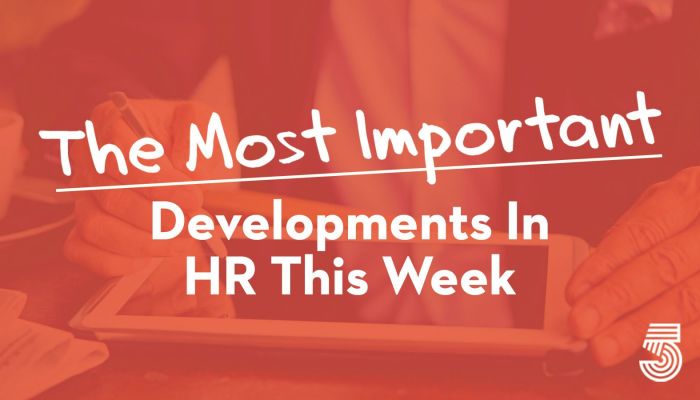The M.I.D., as we call it, is curated by our editorial team from more than 50 news sources. Like a lot of good ideas, this started as something I wanted for myself. If I can’t read everything, I at least want to stay abreast of the most important developments.
This week in HR, desperate companies lured candidates with a no-vax promise, Maslow’s hierarchy of needs invaded HR, job hopping was set to accelerate, CEOs joined the Great Resignation and “Work Rules!” author wrote new ones.

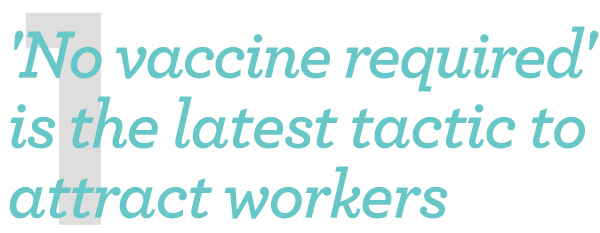
In the search for workers in this tight labor market, companies have courted new hires with the promise of higher wages, sign-on bonuses, ample vacation time, and childcare. The latest: “No vaccine required.” That three-word phrase is popping up across online job listings (sometimes emphatically in all caps and accompanied by exclamation marks) as businesses seek to turn the federal government’s proposed vaccine decree on its head and attract employees, notably those from a talent pool that’s been turned off by or turned away from employers that require a COVID-19 vaccination. And although the reasons behind the “no vaccine required” job listings vary by business — for some owners, it’s philosophical; for others, it’s desperation amid an unbalanced labor market — several employers say it’s working. When Primal Life Organics amended its job postings to include the phrasing “*NO VACCINE REQUIRED,*” the company saw an increase in applications from the single-digits to 30 or 40, said CEO Trina Felber, who founded the Akron, Ohio-based maker of natural skincare and dental products in 2009. CNN

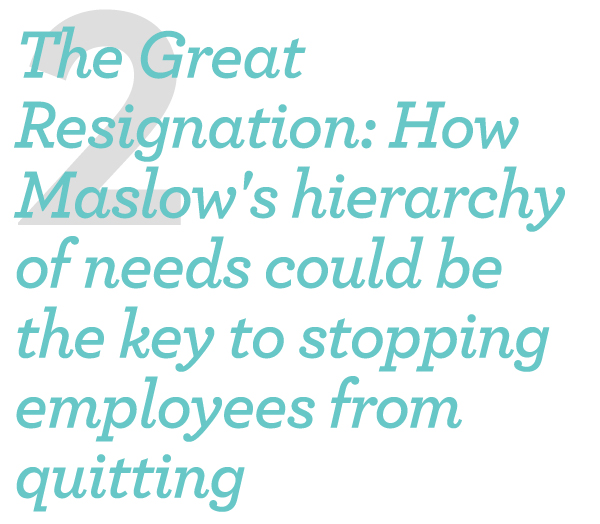
Before the pandemic, effective leaders benefited from a deep understanding of human psychology, including what motivates people and makes them feel fulfilled. Today, they require it. Abstract psychological concepts like intrinsic motivation and a sense of belonging are the main indicators of strong work performance and company loyalty, David Rock, cofounder and CEO of the NeuroLeadership Institute, tells Fortune. “This was true in normal times, when the outside world wasn’t really stressful.” But over the past year and a half, employees’ need to feel motivated at work and to find meaning in the work they are doing has become critical for managers to understand, Rock, a neuroscientist, says. “When the outside world is really uncertain, you need more purpose in your day-to-day.” According to the Bureau of Labor Statistics, since April 2021, nearly 20 million workers have left their jobs, which has left countless companies in the lurch, desperate to attract new talent. Employers must recognize that over the past 18 months, the workplace-worker dynamic has seismically shifted. No longer are jobs a means to an end; workers increasingly expect their employers to provide benefits, allowances, and flexibility conducive to a work/life balance that, pre-pandemic, may have seemed unattainable. And if companies don’t meet their needs, they will take their labor elsewhere. Fortune


As CEO at Humu, where we help Fortune 500 companies build world-class cultures, I’ve seen firsthand how experienced leadership teams are struggling to navigate the shift to hybrid work and maintain a culture of excellence. When I was the senior vice president of people operations at Google, we had many employees, especially in engineering and sales, who worked from home a few days each week (even if we didn’t call it hybrid back then). And Google was named by Fortune as the best company to work for in the United States eight times. In 2015, I wrote the book Work Rules!, which laid out a set of guidelines, based on my time building Google’s culture, for how to combine data analysis, academic rigor, and human resources best practices to create a world-class company culture. It included rules like, “Make work meaningful,” “Hire only people who are better than you,” and “Be frugal and generous.” Based on my time at Google and now at Humu, I revisited what I wrote in 2015 to identify the five new rules of hybrid work: Make work purpose driven, trust your people more than feels comfortable, learn in the small moments, provide clarity, and include everyone. HBR

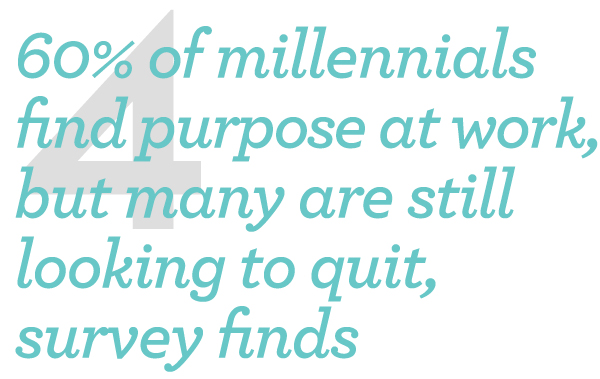
Snigdha Sur runs the media company The Juggernaut, which she started in 2019. She’s among the 60% of millennials who find great meaning and purpose in their jobs, making them the largest demographic to feel this sense of fulfillment, according to a new survey by GoodHire, the background check technology company. That’s in contrast with Gen Xers’ 51%, Baby Boomers’ 44%, and Gen Z’s 41%. Despite millennials’ positive feelings about work, this cohort is looking for an exit strategy. Forty-six percent say they plan to job hunt in the next 12 months. The contradiction makes sense, according to Lindsey Pollak, author of The Remix: How to Lead and Succeed in the Multigenerational Workplace, because millennials experienced two of the biggest downturns in recent history once they were already in the workplace — the Great Recession and the global economic woes stemming from the COVID-19 pandemic. At the same time, Pollak points out, millennials are at a time in their lives when they need the finances to hit certain milestones, such as having children and buying a home. Fast Company

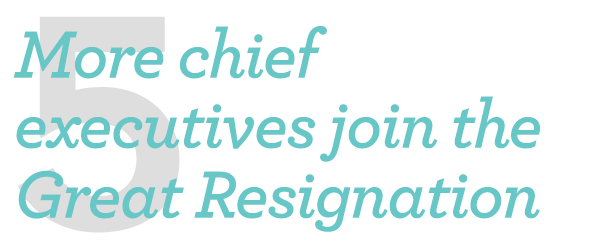
CEO turnover spiked in the first half of 2021, as companies tapped new talent to navigate the aftermath of the COVID-19 pandemic and stressed-out chief executives sought a career change, a study from recruiting firm Heidrick & Struggles found. The findings illustrate how CEOs are not immune to the exhaustion that has swept hundreds of millions of workers worldwide since the onset of the pandemic and has pushed many to consider a new job or lifestyle in a wave dubbed “The Great Resignation.” “Our belief is that it will only accelerate going into next year as people have delayed their retirements,” said Jeff Sanders, co-managing partner of Heidrick’s global CEO and board practice. “Many CEOs didn’t have to travel as much,” which helped them preserve their energy, Sanders said. But communicating “virtually” in a new medium was “exhausting,” he said. The reluctance of many boards to meet CEO candidates physically or place risky bets on outsiders while the pandemic lingers favored internal applicants, the study found. Nearly two-thirds of new CEOs were internal candidates, up from just a little over half during the same period in 2020. Reuters







